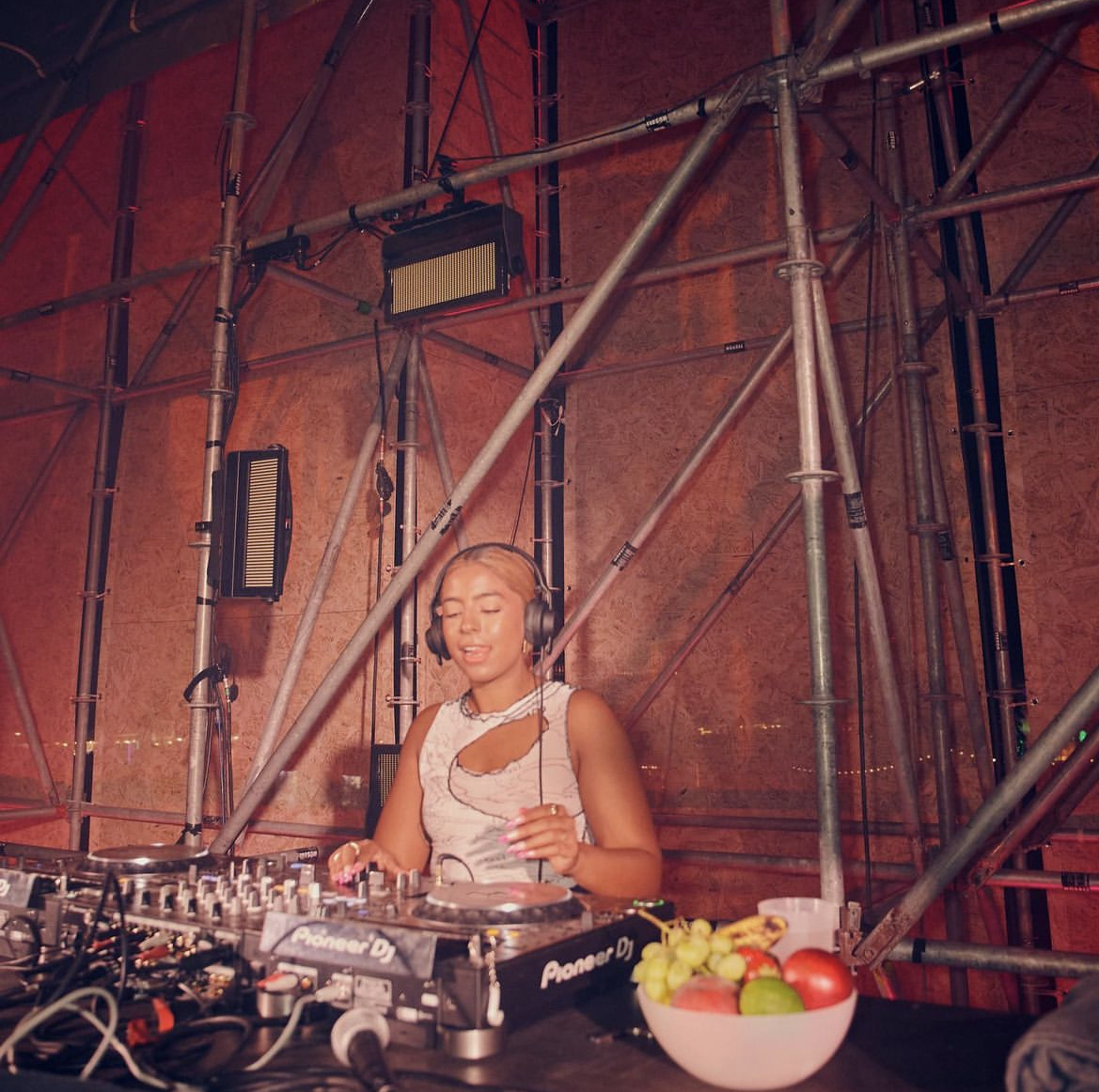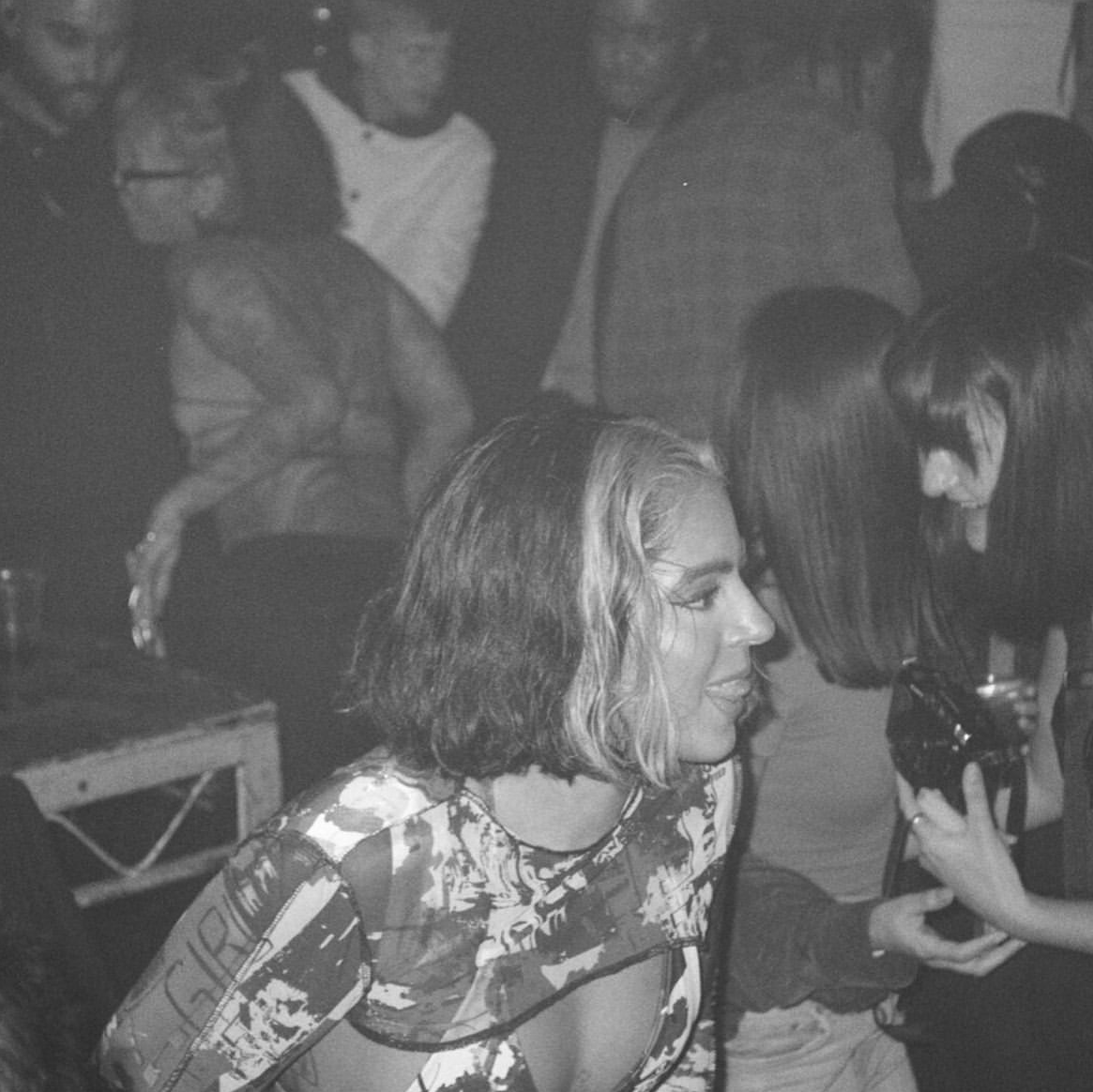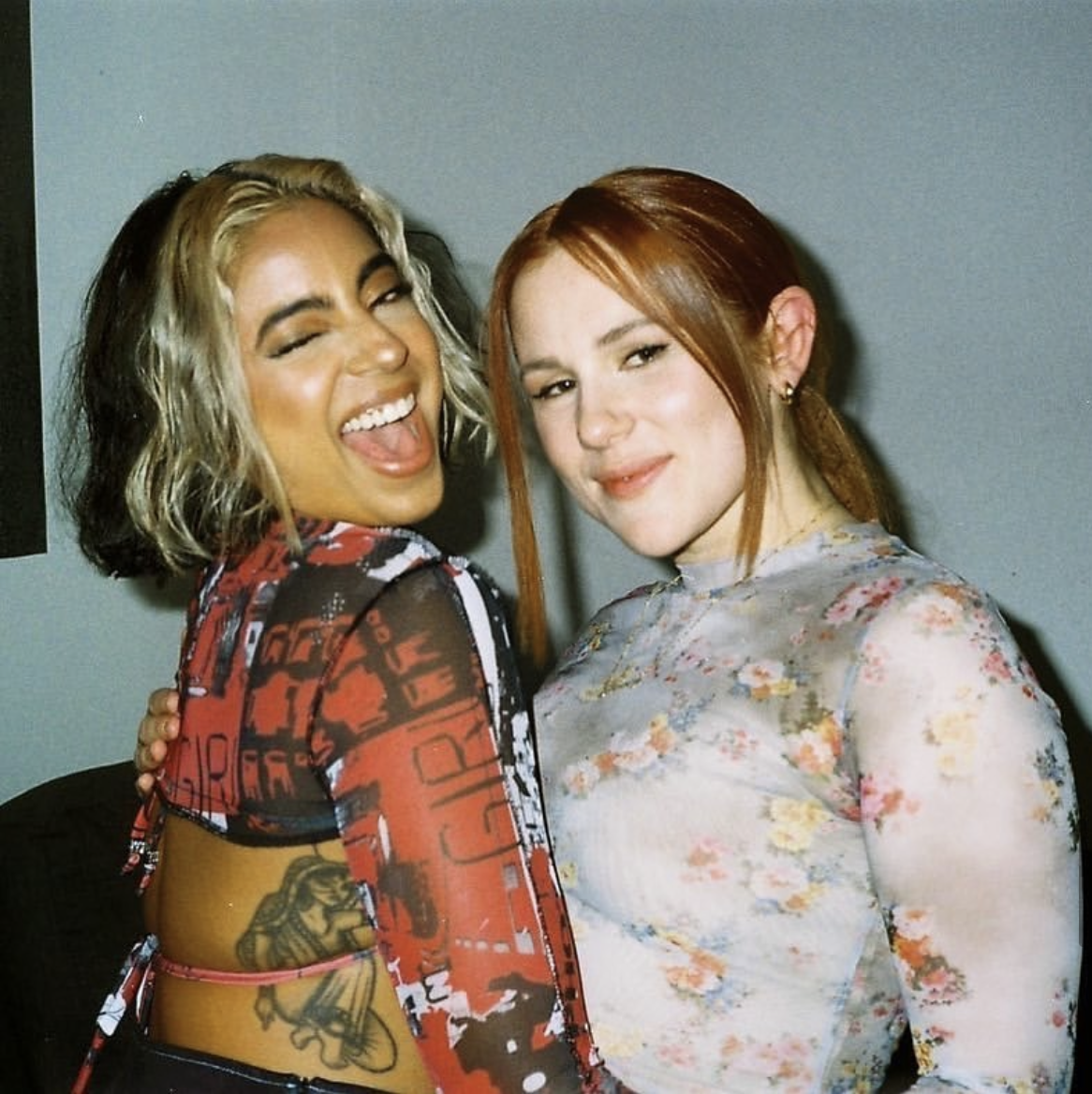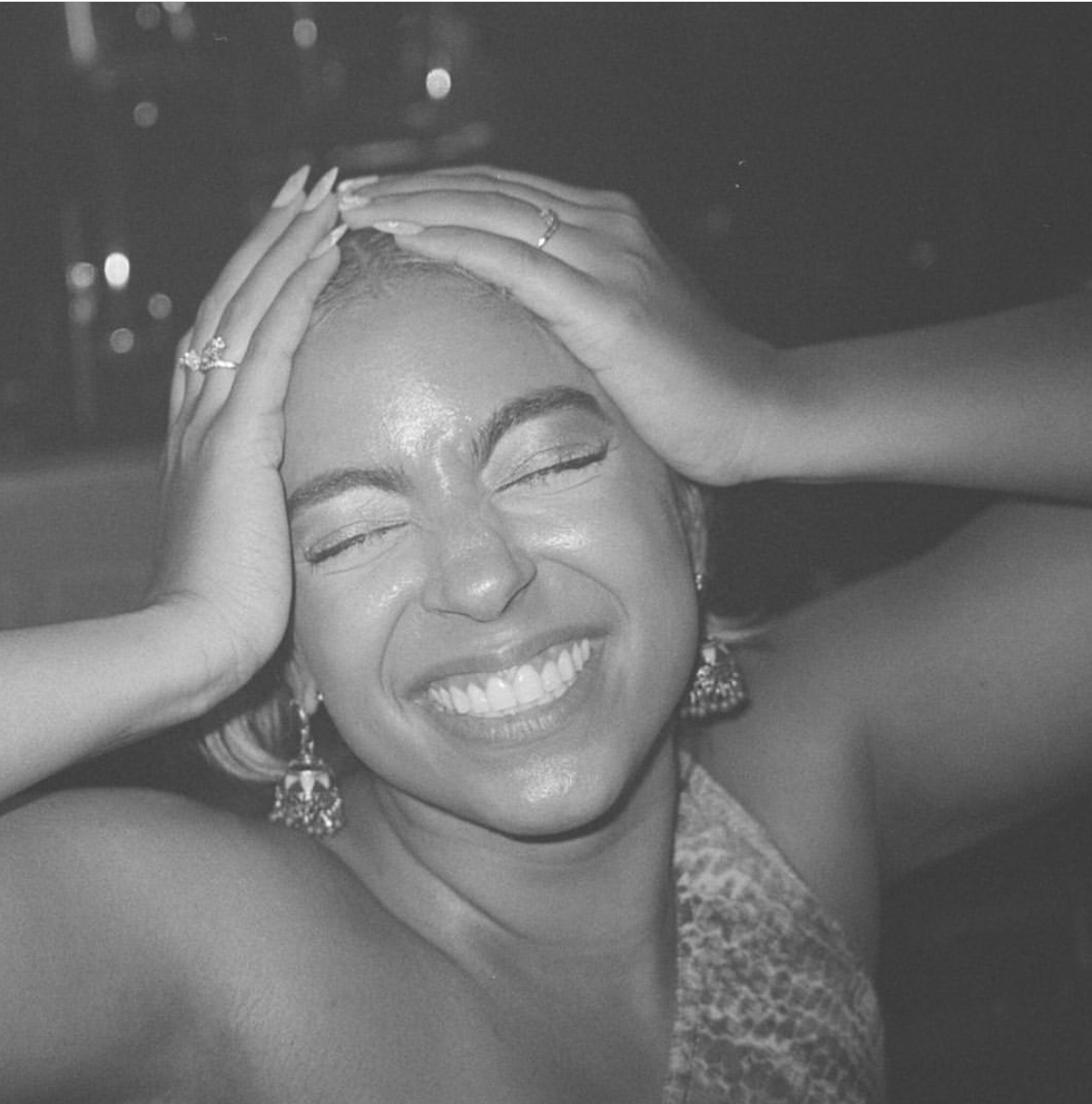“The club is where I was raised”: Raves, breaking rules, and owning narratives with Jyoty
Interview + Words by Evar Hussayni
It’s a Friday night in February and the year is 2007. I’m barely 14 years old. It’s my cousins 23rd birthday and they’re going to ‘Smoove meets Rhythm n Funk’ at Ministry of Sound in London, where DJ EZ is on the line up. After begging my cousin for two hours to let me come with them, she gives in. “Just wear a slutty top and you’ll be fine,” one of her girls tells me. I was gifted my first EZ album the year before and had since grown an obsession with him, listening religiously to his shows on KISS FM every night after school. I had to be at ‘Smoove meets Rhythm n Funk’.
After lying to my very strict, very over-protective Kurdish mum about where we were going and leaving the house in a modest outfit to not incriminate ourselves, we finally arrived at the entrance of Ministry. I stripped down to my mini skirt and vest top, pushing my tits up a little to make me look older. Within a few minutes I was in. My cousin screamed in my ear, “Don’t speak to any boys and don’t you fucking dare touch any pills or drinks anyone tries to give you, okay?!” It was my first time at a rave, I was overwhelmed but I fell in love.
This moment of rebellion changed my life forever. It wasn’t the only time I sneaked out the house in an outfit, stripping down, then sneaking my way into a club where EZ was performing. Fabric, The End, Egg London and even Garage Nation all had back doors that saw me come in and out, until I finally turned 18. I can safely say though, I wasn’t the only one enticed by trouble...
JYOTY: “I got put into cuffs when I was 21 in Sacramento. I was escorted out of a nightclub by two big guards and got escorted out of the staff elevator straight into the police's hands, straight into a police car. I was on my Naomi Campbell shit. I was just like ‘this is a huge inconvenience for me. I need to go back to the club!’…That's all I'm going to tell you”
EVAR: “No hold on a damn minute, you have to tell me more!”
JYOTY: “Look, people who know me well, know there's a reason why people always referred to me as a little demon. I'm very mischievous. If there's any little opportunity to get into trouble, I will do it. My whole life I was like a really well behaved, good kid. My whole life, until I was about 16 or 17, I didn't get into any trouble. And I think part of me becoming who I am now, was by just breaking lots of rules. Somehow, I haven't let go of that 16 years later. If there’s ever a moment where I’m like wow you’re going to really regret that tomorrow – I’m like fuck it let’s do it, let’s go!”.
Although Jyoty shares many moments of sneaking in and out of clubs with fake ID’s, her first club-like memory was around 12 years old at her high school dance. It has her first time experiencing DJ’s – some that have gone on to be some of Amsterdam’s biggest names, including ‘Waxfiend’ and ‘Full Crate’. With no parents around and the older kids having access to beer and wine (under teacher supervision), it was an experience many of us loved and chased as teenagers – freedom. You could say this is where it all started for Jyoty.
I first met Jyoty at a party in Dubai, seeing her again the next day at a launch party hosted by Sole DXB and Burberry. Jyoty was closing the night with a DJ set filled with house, UK garage, hip hop, and funk from across the globe. I have a vivid memory singing my lungs out to a remix of Usher, ‘U Don’t Have To Call’. Around 3am, we ended up in a taxi on our way to Satwa Falcon - a 24 hour fast food restaurant. As a quick introduction, Jyoty was born and raised in Amsterdam and is currently one of the most in-demand radio presenters, hosts and DJ’s. Having moved to London at 22 to pursue a Masters in ‘World History and Cultures’ at Kings College London, her trajectory took an entirely different turn when she began working in the cloakroom at The Nest, one of the biggest nightclubs in London. My interview with Jyoty involved the usual repetitive questions; how did you start? How do you choose the music you play? What role does your identity play? Despite this, I was blessed with details and stories that showed me one thing – she went through the exact same thing we all did: hustle culture, money problems, endless partying, and an itch to rebel. There were some moments where it felt as though she was telling me my own life stories, but they were hers.
JYOTY: “I didn't really want to go for my Masters, but my mum was like, ‘if you're moving to London, you need a reason to move. I'm not just going to let you move to London’.
I felt like a prisoner in my own home, and I didn't feel like moving out in Amsterdam was going to make a difference because the city is so small - I'm still going to run into all my uncles and aunties who are probably going to chat shit about me anyway. So London was a good next step because it was close by. It's a city I was obsessed with since I was 16 and had visited so many times. I love the music – I was a club kid; I was out three nights a week in Amsterdam so I thought ,‘where's another city where I could go out three nights a week and I'd love all three nights in a row?’ London!”.
10 years in the making, there’s a common theme in Jyoty’s work history: elevation. At The Nest, she went from cloak room to door girl. At Boiler Room she went from door girl to host. At Rinse FM, she went from co-host to presenter to specialist. At Mixcloud, she went from account manager to creative producer. Jyoty even took things into her own hands, when she and her friend, DJ Tom Armstrong, started an independent music magazine titled ‘The Move’. As lead editor, Jyoty was able to put her passion for music, language and interviews, into practise.
JYOTY: “It was probably one of the best things I've ever done. We would blag ourselves free flights and accommodation to Lisbon for 48 hours because we were saying we’re a print magazine and then we’d stay up for 48 hours doing drugs in the street of Lisbon, and write about it”.
Featuring the likes of T. Williams, Youssef Kamal and Yazmin Lacey on the front covers, The Move became a collector’s item with eight issues hitting shelves in New York, Tokyo and more. The skills attained taught Jyoty how to truly be a curator – someone who genuinely cared about the engagement and display of an artist and their artistry. At this stage though, Jyoty hadn’t given up entirely on her studies and the career that came out of that. While pursuing her calling in the music industry, Jyoty was working full time at Portcullis House as a copyrighter for her local MP of Tower Hamlets.
JYOTY: [At Rinse] I started as a presenter and I hated all the music on the playlist, so I started sneaking in my own. It went from one song, two songs, then five songs. One day I get called into the office, and I met Geeneus for the first time. He goes ‘Nice to meet you, do you think I don't listen to my own radio station?’. And I was just like ‘hehehe, errrr do you?’. Then he was like ‘what are these songs you’re playing and why don’t you stick to the playlist?’. I was just like ‘oh yknow…I just really have my own taste in music and no one's playing them on your shows’. He goes ‘what do you want then?’, and I go ‘I wanna be a specialist!’. He said ‘are you a DJ’ I said ‘no.’ He said ‘do you work for a label’ I said ‘no’. He said ‘are you a journalist’ I said ‘no’. Then he goes, ‘so what’s going to make you a specialist?’ And I said ‘because no one's playing the music that I'm going to play.’ Then he’s like ‘okay you got a month, let me see what you’re going to do”.
Strangely, Jyoty went under the radar in the UK. With a huge listenership in the US, Japan, Brazil, France and even Canada, audiences in the UK weren’t as familiar with her work. She explains to me that even today, most people don’t know about the radio work she does, especially as she considers her radio work the most important. Endless themed-playlists and an archive of incredible interviews with some of the biggest artists (who Jyoty caught at the brink of their successful careers), Jyoty captured a loyal fanbase that has grown into a special relationship. Her radio shows allow her to reveal her own personality in all its multi-faceted existence. She often reflects vulnerably on the past, the present and the future as she shares endless personal stories and opinions. She is returned with the same vulnerability from her audience. As a result, every Thursday on Rinse FM, Jyoty treats her listeners with upmost love, showering them with first announcements, opportunities to see her live at her shows, first grabs on tickets and even gossip you won’t hear anywhere else, alongside a selection RnB, soul and house music. However, when Jyoty began DJ’ing only five years ago, a similar course of un-recognition in the UK occurred.
JYOTY: “Everyone is trying to book me because of the music I played on radio, but I had never touched decks. Jamz Supernova one day comes to me and says, “I'm doing this big event at Bussey building and I want you to open”. She had Addison Groove as a headliner. I said, ‘Jamila I can’t DJ.’... she said, “You've got two weeks to learn”. I cried after my set because I was so bad, but I did it”.
This is when things came full circle for Jyoty. Word got round to the avid listeners of her radio shows that she was now on decks. Job offers were flying at her left, right and centre from promoters across different countries – but again, not in the UK. She decided to play the long game, confident that the UK would show love eventually. She would tease her UK supporters, promoters, radio listeners, new fans and social media followers with footage of her sets in New York, New Dehli and Berlin. She even opened up for Palm Trax at house festivals – an opportunity which came along because of the intricate attention her international fan base paid, being completely aware of Jyoty’s specialist understanding of house music through ‘The Move’s’ Balamii show. When Jyoty felt that London was finally ready to appreciate her work, a sudden response to COVID-19 ended up with a global lockdown.
The worlds relationship with social media and the internet changed entirely when the pandemic began. Its use essentially fell into two categories; for many it was an escape from the draining and exhausting reality which changed the lives of so many. For others, it was an opportunity to display skills, work, services and to monetise all in the comfort of your own home. For Jyoty, lockdown was great – her ability to utilise her personality to connect with her audience meant her following grew massively. Hours of DJing on live-streams was a chance for her give the world what was needed – a release of endorphins and a quelling of anxiety.
Now, alongside promo of her work, Jyoty can be seen on Instagram sharing chaotic stories of the night before, personal opinions and philosophies around current global politics and intricacies regarding the creative scene, as well as reminding the female demographic of her following to now and then “make men cry and rob them whenever you can”, but none of this is done because she feels the need to. Yes, her activeness has helped her career but when it gets down to it, she just simply loves social media and posts because she wants to. Funnily enough, my lockdown consisted of endless listening to both Jyoty and DJ EZ, skanking in my plush leopard print onesie, that found itself on my body way beyond just the morning.
JYOTY: “I was like a whore on the internet. I was on Twitch, I was on Tik Tok, I was on YouTube, I was on Instagram, I was on SoundCloud, I was on Mixcloud. I was everywhere. People caught on. Then we came out of lockdown and I said I'm playing London twice this year. I played one time for Skinny at Fabric. That was my debut set after lockdown. It sold out. Like, Juls even played before me! The next few weeks on socials was all these clips of me just like killing room 1 in Fabric. After that I said I'm not DJ’ing in London until next year (2022). That's when we announced Homegrown”.
Homegrown is the epitope of what club culture represents. It embodies the joy and softness of a club night. A crowded sweaty hotbox with colourful DJ lighting cast over faces upon faces surrounding the DJ booth, as a multitude of sounds force each and every body to dance and skank until it’s time to go home. Homegrown is a community - a raver’s community. Often, the importance of club culture is entirely neglected. But for many of us, it’s where we learn to interact (14 year old me at Ministry of Sound). It’s where we socialise. It’s where we build friendships and relationships (heck, even situationships). It’s where we learn how to love and sometimes end up falling in love. It’s where we learn how to kiss, learn what our personal boundaries are, what our likes and dislikes are in music, people, fashion. It’s where endless memories are made, worldwide connections are created and even creative collaborations and mastery is born.
Jyoty’s goal when curating Homegrown was to always be thoughtful. The first ever Homegrown which took place in London had a line-up specifically curated of DJ’s aged 30 years and older. It is never about, “What's easy, what's hype, or what 'sells” for Jyoty. Her goal was to create range in sound, genres, tempos, backgrounds, age, interests, skills and more. For her, it’s a long game to create impact and legacy. And even then, regardless of how important the vision is to Jyoty, what’s always been more important is simply that those attending dance their ass off and sing their hearts out.
JYOTY: “I’m extremely protective of Homegrown. I will fight someone and drag them by the hair if they try to ruin Homegrown in any way”.
Club culture holds a place in a wider conversation and discourse around identity and community. In my own work, I intricately explore the many complexities and layers of community and safe space, and how these aspects are affected by identity. I’m intrigued by how communities are represented; how political and societal influences play a role in the way communities navigate themselves and their surroundings, depending on their identity. As a brown girl navigating life in the art world let alone in a city of increasing right-wing culture and legislation, I’m always hyper-aware of the elements that are harmful to me, my friends/family and my work. More recently, because of the push-back against discrimination and lack of diversity in the workplace and creative industries, we’re witnessing tokenisation and fetishisation of Black and brown people. For me, it’s often a case learning as I go because I was never handed any tools, but it makes me curious how other brown girls navigate their identity in the work they do. For Jyoty, keeping hold of her own narrative is the most important thing for her when it comes to navigating her identity within the music industry.
JYOTY: “I cannot have my narrative told for me. I am in control of what my narrative is. I know I'm brown as fuck. My parents were quite liberal. I was allowed to go clubbing. Other people from the Indian community weren't. The club is where I was raised. I wasn't around other brown people in the club. I only met other brown people clubbing when I came to London, like second and third generation folks. So my brownness doesn't come from my proximity to other brown people. My brownness comes from experiences I’ve lived. I've been going to India since I was born. I speak my language fluent. I know the food. I know within myself what my politics are and what that means to me. However, what I will not let this music industry do to me is disregard my work”.
And in charge of her narrative she really is, admitting that DJing isn’t something she sees herself doing for much longer.
JYOTY: “My head is in 2024 - I'm a one-woman agency. I don't see myself DJing at this level for much longer…I would want to, but this game doesn't have longevity if you're not a musician, and the scene is so saturated that you're hot for one or two years and then you just fall off. And that's okay, I'm completely prepared for that because I'm getting into movie scoring, I'm getting into sound supervision. I want to go back to making campaigns”.
So, what is Jyoty up to right now? Other than announcements of exciting brand campaigns with the likes of Havana, Daily Paper x Adidas and Dr Martens, or landing cover story of Gaucho World, or even raising money selling Homegrown T-shirts to raise money for Southall Black Sisters, a charity that helps women experiencing violence in the home, she recently DJ’d alongside Tama Sumo, Lakuti, and Amike K in Dakhla for Oasis Festival – Morocco’s biggest electronic festival. She’s also halfway through her Hot Mess Express tour, her first ever own headline tour that includes 3 sold out Homegrown parties in legendary venues: Razzmatazz in Barcelona, Paradiso in Amsterdam, and Koko in London and an upcoming tour to take place in Australia. Additionally, Jyoty recently recorded her first session with Hör, which can be viewed below. After her Hot Mess Express tour is over, Jyoty will be taking a few months break, but rest assured 2023 will be full of bigger dreams, bigger achievements, and bigger parties.
By the end of the interview, I shared with Jyoty that I too used to work at a club once. At 18 I had moved to Leeds to study my BA and after a chaotic first year going to different club nights and events night after night, partying till 7 or 8am and rolling into lectures straight from the club, I became a shot girl for the infamous Walkabout and then a bar tender at one of the scattiest yet loved clubs in Leeds, The Space. A small bond was created between Jyoty and I when we agreed that the skills, interactions, and patience gained from working in the rave scene was one of the most special things, and something that is still carried with us today. This was followed by Jyoty having a lightbulb moment: “Why don’t we live our best P Diddy fantasy and have you work as a shot girl at Homegrown! You can pour drinks in everyone’s mouths!”. Look, I might be a little older now, but what Jyoty doesn’t know is I’m absolutely fucking holding her to that. If you see a lil cutie walking around in stilettos and romper shorts pouring Hennessy shots in all the mouths that exist in the crowd of the next Homegrown, just know that lil cutie was me.
You can find more content by Jyoty on her instagram and Youtube channel:
@jyoty




